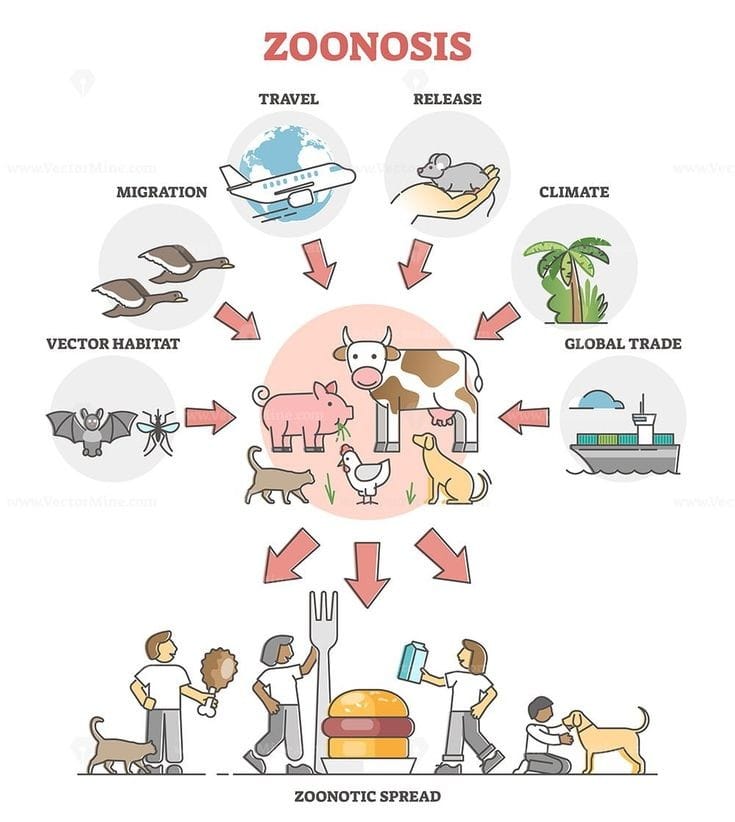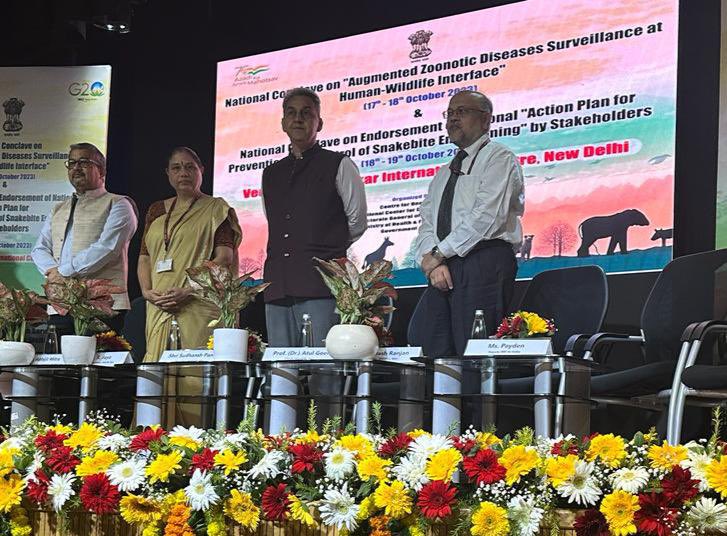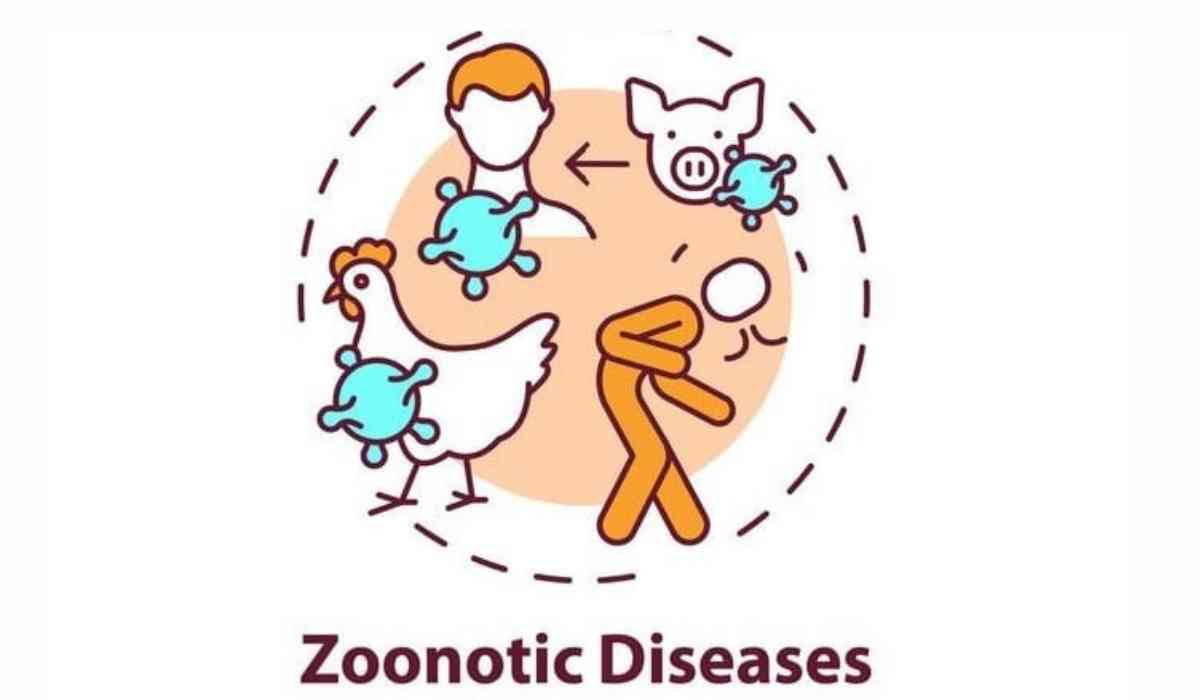Union Health Secretary Sudhansh Pant, speaking on October 17, highlighted that a lack of adequate knowledge and skills in identifying zoonotic diseases, along with limited diagnostic capabilities across all levels, has led to the neglect of infectious diseases caused by zoonotic pathogens.
He further mentioned that zoonotic diseases are a concern as they impact both human and animal health. Additionally, he noted that 75% of the recently emerged infectious diseases affecting people in the last three decades are of zoonotic origin.
Pant emphasised the importance of gaining a deeper understanding of the precise causes and mechanisms of zoonotic diseases to effectively prepare for potential disease outbreaks in the future.
What is zoonotic disease?
Zoonotic diseases are infections that are spread through germs like bacteria, viruses and parasites, usually when Humans and Animals interact with each other. The most recent and common example is the COVID-19 disease caused by the coronavirus, spread through bats. Many zoonotic diseases are mild but others like Rabies are usually life-threatening.

Pc: Pinterest @vectormine.com
Stressing the impact of the COVID-19 pandemic, Mr Pant emphasised the necessity of addressing diseases from both human and animal viewpoints and considering these fresh and evolving health risks, the Health Secretary emphasised the significance of the "One Health" approach.
He pointed out that a significant number of emerging infectious diseases emerges from the evolving interaction between humans and animals within their shared environment. This interconnectedness underscores the value of employing a 'One Health' approach, enabling the utilization of the strengths and complementarity present in each sector and the development of comprehensive, adaptable response systems. This approach aligns with India's G20 presidency theme of "One Earth, One Family, One Future," envisioned by Prime Minister Narendra Modi.
Other disease-related concerns emphasised by Pant
Pant highlighted that in addition to the rise of zoonotic diseases, antimicrobial resistance (AMR) has emerged as a substantial global threat. He further stated, "The rapid spread of bacteria resistant to multiple drugs, coupled with the absence of novel antibiotics to combat infections from potent antimicrobial agents such as carbapenems, presents a swiftly escalating menace to human health. This demands urgent attention and action Mr Pant too emphasised the life-threatening nature of snakebite envenoming, labelling it a significant public health concern.
He stressed the need for a specialised framework at the national level to effectively address the challenges associated with snakebite envenoming, especially considering India's substantial burden of this disease.
"Similarly, diseases transmitted through contaminated food or Foodborne diseases, stemming from factors like inadequate hygiene, misuse of antimicrobials, environmental pollution, and improper animal husbandry practices such as antibiotic misuse in farms, also pose a substantial threat," he added.

PC: Ministry of Tribal affairs, Gov.of India's official X handle.
Mr Pant's remarks were made during his keynote address at the national conclave on "Augmented Zoonotic Diseases Surveillance at Human-Wildlife Interface" and the national conclave for endorsement of the "National Action Plan for Prevention and Control of Snakebite Envenoming," organised by the Centre for One Health and the National Centre for Disease Control (NCDC). These events focused on crucial aspects of disease surveillance and prevention at the human-wildlife interface.
© Copyright 2023. All Rights Reserved Powered by Vygr Media.






















